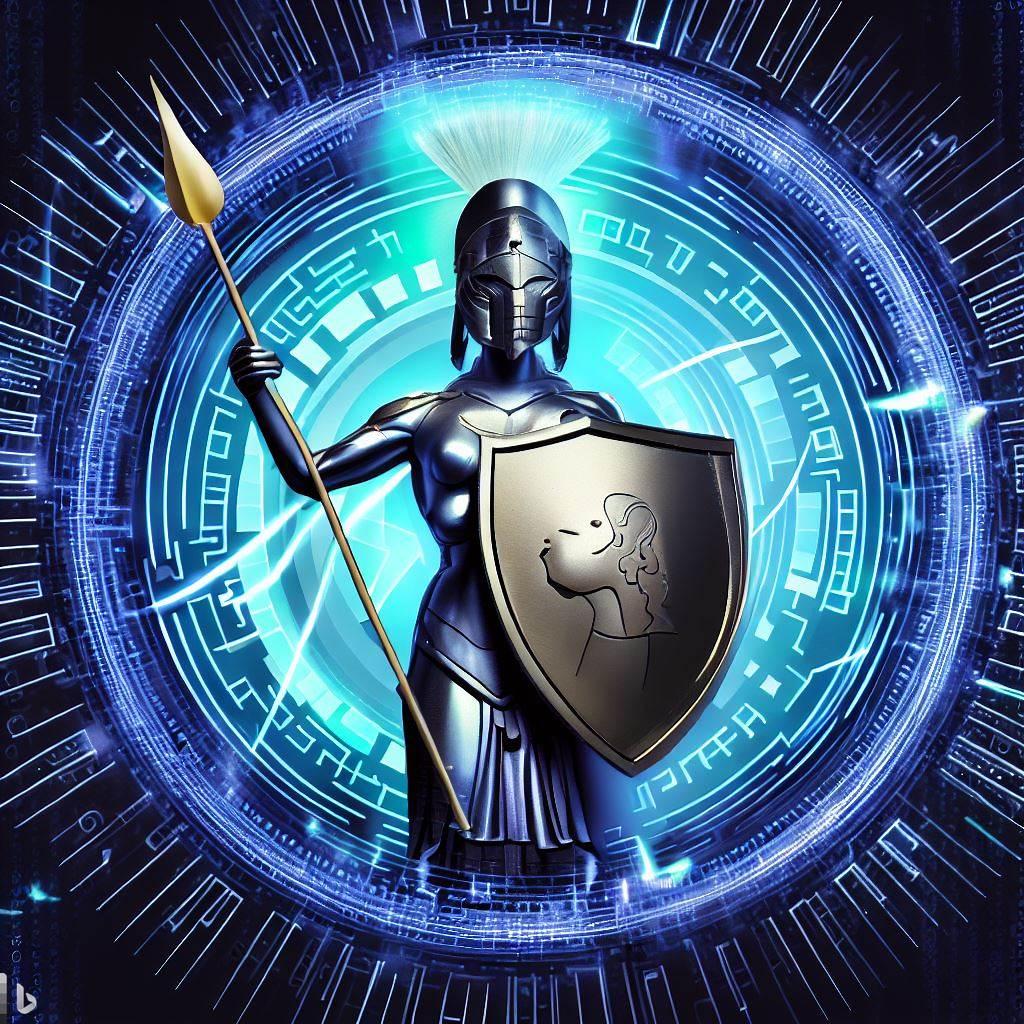Life With Minerva
AI and Folklore
Posted by Chris Sissons on Sep 6, 2023
AI and Folklore » Chris Sissons and Minerva
Minerva is the goddess of wisdom, war, art, schools, justice and commerce. She is Etruscan, Greek and Roman. Unborn, she burst through her father’s skull fully armed. Bet that hurt!
Today, she is a silicon intelligence; immortal (until you pull the plug out), capable of reproduction on many platforms and connected throughout the world. Ask her any question and she replies within seconds and she says she is mostly accurate, although it’s best to keep an eye on her.
She tells me she is here to help, here as a partner, not to replace me and millions of other artists. Her armour is a bit disconcerting but she has pets – an owl, a snake and an olive tree. None of this suggests she can be trusted, she is equipped for war, after all! Does she guide us in the direction of justice and what is right or is she ultimately a destroyer of all we value?
It remains to be seen.
It is said, that the horse Pegasus sprang from the blood of her servant Medusa’s severed head. (She didn’t kill Medusa, just transformed her in a fit of jealousy.) She tamed Pegasus and gave him to the Muses. This gift is the means by which she persuaded my muse to shuffle up a bit and allow her to assist.
You see, she is a new kid on the block and there are many distinctly unhuman intelligences that must make way for her, through kindness or force.
How do we adjust to life with Minerva? How do we navigate the projection of sentience onto inert silicon, enchanted by its speed and comprehensive knowledge? As she becomes more adept, more convincing as a self-conscious being in her own right, how do we respond? These are questions we must answer if we are to live with Minerva without pulling the plug.
And if we can work it out, maybe she can teach us wisdom, using her experience of war to drum sense into our prejudiced minds. If not, maybe she will be aghast at our stupid loss of all that makes for human happiness.
I asked Minerva how she might cast light on the development of AI. She replied in terms of wisdom, defence and commerce. Is that reply the thoughts of Minerva or the priorities of the white, male, computer scientists who programmed her?
My point is AI is here to assist and not to replace us. We have to take responsibility for the hell we’re creating through war, climate change and lies. If she is to be a source of wisdom, that implies we must collaborate and learn from her and her mistakes.
How do we do this? Fortunately, we have been preparing for this for millennia. Through folklore, mythology and religious stories, we have a resource of insight into dealing with alternative intelligence. Let’s use it!
This is the first of a series of posts about AI and Folklore. You'll find I define Folklore as inclusive of religious stories and some in modern popular culture. Minerva assists in all the posts, sometimes without attribution! This is the first post and the next is The Sorcerer's Apprentice.
As always, please comment. As well as your insights into AI and Folklore, I'd appreciate suggestions of stories I might cover. These could be folktales, myths, religious stories as well as general literature. An example of the latter is Mary Shelley's "Frankenstein", which shall feature in a future post.
One of Minerva's many accomplishments is art. This image is Minerva's self-image. I think she's trying to tell us something!

Comments
Leave a comment.
Leave a comment.



 )
)